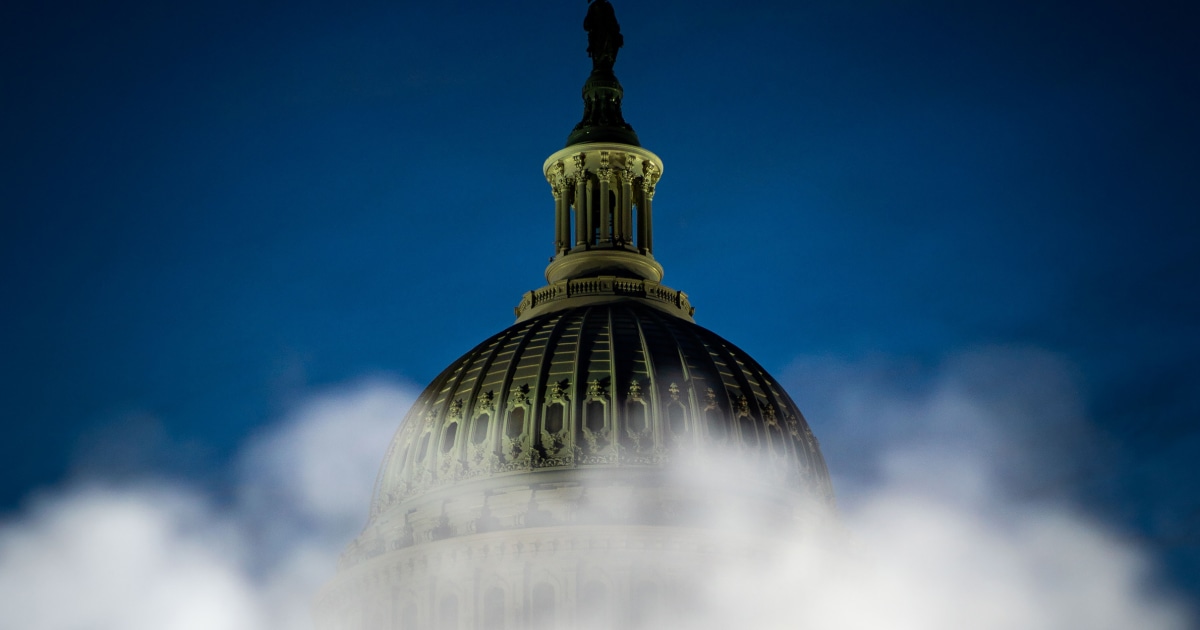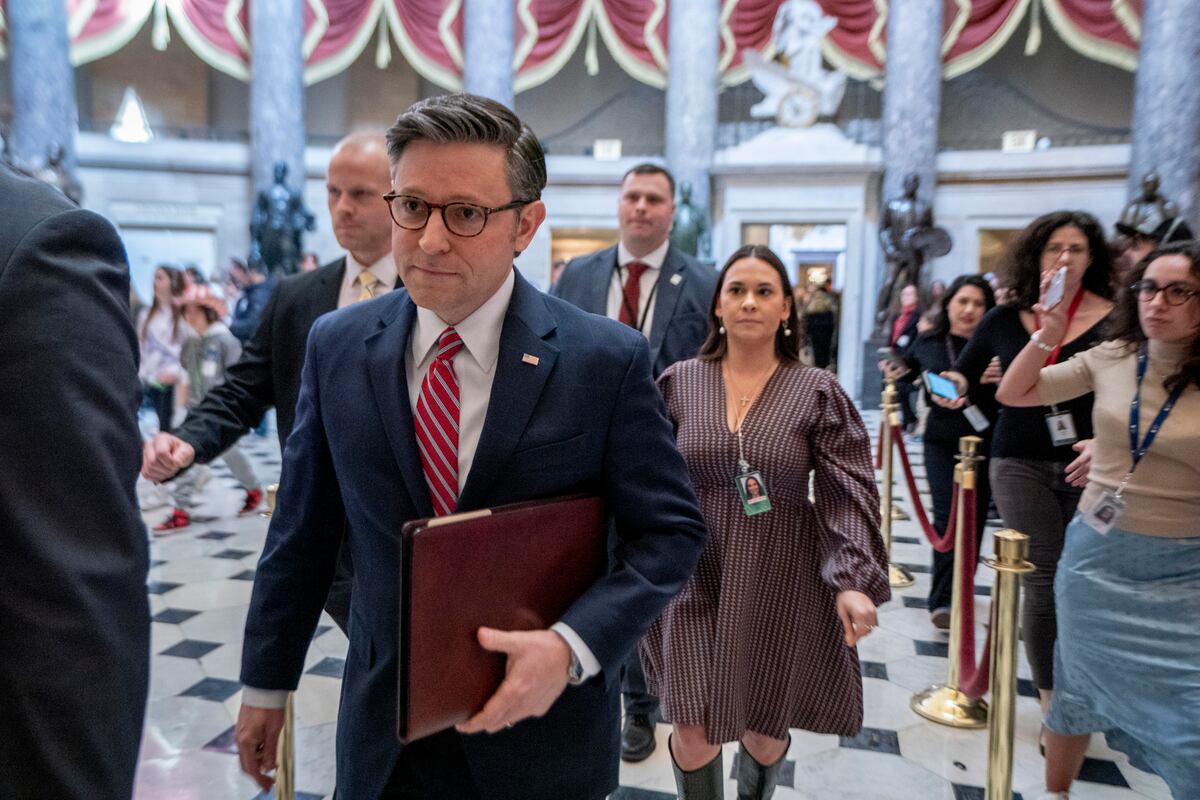By Shannon Pettypiece — NBC News
With negotiations between the White House and Republican leaders in the House of Representatives painstakingly moving toward an agreement to raise the debt ceiling, every day that passes raises the risk that the Treasury Department will run out of money to pay all its financial obligations in early June, plunging the world economy into an unprecedented crisis.
The crisis affects a law that limits the total amount of unpaid federal debt. The country reached that limit in January, but the Treasury says it has been using stopgap solutions, or what it calls "extraordinary measures," to keep paying.
But Treasury Secretary Janet Yellen says those efforts will dry up in the coming week and the U.S. may run out of money to meet all its obligations as early as June 1. The Treasury Department doesn't know the exact date, as there's a steady stream of money in and out of federal coffers, but Goldman Sachs projects the date could be closer to June 8 or 9, and the Bipartisan Policy Groups says the date is likely between June 2 and 13.
[House Democrats Call for Vote on Debt Ceiling Hike]
Regardless of the exact date, without legislative action, the United States is days away from not being able to pay all its bills, something that has never happened before. Like anyone facing a budget crisis, Yellen will have to determine who she pays and when, until the country receives another expected influx of tax payments in mid-June, according to the Bipartisan Policy Center. Those payments could keep the federal government's treasury positive until mid-July.
The discussion over the debt ceiling "looks like one of those duels of the Wild West"
May 22, 202301:40
Yellen hasn't given many details about what specifically would happen once the country's bills exceed her income, but economists and former administration officials have some theories about who might collect and how.
Are debt holders a priority?
One option for Yellen would be to first pay bondholders the interest they are owed on Treasuries and delay paying all other bills, such as Social Security and veterans' benefits, until the government has enough money to do so, economists and budget policy experts said. That was a strategy Treasury officials said they had played in 2011 when the U.S. was close to default back then.
Failing to pay bondholders would likely have the biggest repercussions on the entire economy because of the chaos it would create in financial markets, as Treasuries are considered one of the safest investments in the world.
[Fitch puts US debt on 'negative watch' over lack of agreement to avoid default]
Economists say, defaulting on these payments would almost certainly downgrade America's credit rating, making government borrowing more expensive and driving up interest rates for anyone who wanted to borrow money for a house, car or credit cards.
It would also cause banks to significantly reduce their lending, cutting off lines of credit to businesses that need to borrow money for everything from an expansion to making that month's payroll.
The value of the dollar would also be affected, impacting companies that buy or sell goods abroad.
But even if the U.S. defaults on its debt, the risk of getting so close and unable to meet other payments could be enough for ratings agencies to downgrade America's credit rating, as in 2011, when it downgraded because it came dangerously close to default.
Prioritizing bondholder payments could also have political consequences for the Joe Biden administration if investors are seen as cashing in while others, such as Social Security recipients, don't get their paycheck on time.
Debt Ceiling Talks May Put Millions' Health Insurance at Risk
May 19, 202300:22
"Politically, it's a disaster, because you're paying a Chinese bondholder before someone on Social Security," said Stephen Myrow, managing partner at Beacon Policy Advisors, who worked at the Treasury Department during the Obama administration.
Late payments by the Government
Prioritizing payments regardless of what is owed to debt holders is more complicated, since choosing which of the thousands of bills are paid would be a politically, logistically and legally strained task for Yellen and the president.
[Why don't so many people who make $100,000 a year feel rich?]
Yellen has said the Treasury is not prepared to do so and that default on any payments — whether to debt holders or veterans — would be considered a default.
Given the payment system the federal government uses, it may not even be logistically feasible right now to issue some payments, such as to Social Security recipients, and not to others, such as federal workers, said Shai Akabas, director of economic policy at the Bipartisan Policy Center. If some groups were paid and others were not, the administration could be exposed to legal remedies.
Alternatively, economic policy experts expect Yellen to delay paying all other bills until the U.S. has enough revenue in its accounts to pay all the bills at once. That could mean a delay of several days for those hoping to receive government benefits, which are scheduled for June 2 for some beneficiaries. The longer the stalemate continues, the greater the delay.
Earning $100,000 a Year Is No Longer Enough in Many Parts of the U.S., Study Finds
May 20, 202301:45
"We assume that the U.S. Treasury would continue to make principal and internet payments on time, but would postpone interest-free payments until it had enough money in the checking account to be able to pay all of that day's interest-free obligations at once, without prioritizing them and making sure it had enough money to make interest payments," said Wendy Edelberg, director of the Hamilton Project and senior fellow at the Brookings Institution.
The delay in payments would likely be relatively short-lived, as the U.S. will receive an influx of tax payments on June 15, which could provide enough cash for the country to reach July before it finds itself in a cash shortage again, Akabas said.
However, the physiological effects of the U.S. inability to pay all its bills could lead to a much greater disruption. Stocks could fall 20% in that scenario, similar to the declines recorded during the 2008 financial crisis, according to a UBS report.
What is the difference between non-payment and closing?
A default on the debt ceiling would be different from a government shutdown in several respects and would have far greater consequences for the economy than a shutdown, which the United States has gone through numerous times in recent years.
"We know what a government shutdown looks like, we've lived through it before, it's not pretty but it's not catastrophic either," Akabas said. "With the debt limit it's totally uncharted territory and we could see ramifications that would affect every American household."
Latinos were the second largest ethnic group in business
May 14, 202301:43
The government shutdown is triggered when Congress fails to pass a law to fund it. As a result, federal workers are not paid, nonessential workers stay home, and some federally funded services, such as National Parks, close. But mandatory programs, such as Medicare and Social Security, are not affected.
But in the event of a debt ceiling default, all federal spending is affected, including Medicare payments, Social Security checks and veterans' benefits. Federal workers will likely have to report to work, but they may not be paid on time.
Coins and the 14th Amendment
Economists and former policymakers have proposed several solutions, but Yellen and other top administration officials have largely dismissed them.
One proposal has been the minting of a $1 trillion platinum coin by the Mint that the Treasury could deposit with the Federal Reserve. A law from the 1990s gives the Mint the authority to produce coins of any denomination, but Yellen has called the move a "stunt" and Federal Reserve Chairman Jerome Powell has indicated he would not accept the coin.
We did a financial exercise to help you understand how the increase in interest affects you
May 3, 202301:48
The Treasury could also reissue bonds, auctioning up older bonds with a higher interest rate, which would help bring in additional money without adding debt. But economists say this new form of debt could create chaos in financial markets that could be as bad as what a default would look like.
Another proposal has been for Biden to invoke the 14th Amendment which says "the validity of public debt shall not be questioned," which some have interpreted as making the debt ceiling unconstitutional. Under that interpretation, the U.S. can continue to issue debt to raise money, assuming investors are willing to buy it and trusting it would stay in court.
Biden said he has considered invoking the 14th Amendment, but acknowledged it would likely end up in court, essentially causing a default while the measure is litigated.
Another option would be congressional action. If Republican House Speaker Kevin McCarthy is unwilling to introduce a bill to raise the debt ceiling without the funding cuts Republicans are demanding and Democrats oppose, a majority of members could introduce it themselves. It is unlikely that there will be enough support for this discharge or time option, given the lengthy process involved.
This you need to do if you want to keep sharing your Netflix account (Hint: you'll have to pay)
May 24, 202300:23
Even if one of these proposals were carried out, it would not avoid the psychological effects that would occur in global financial markets if the United States found itself in a situation where it could not pay its bills, Edelberg said.
"All of these solutions that people are thinking about don't solve the basic problem that afterwards there will be all this consternation because we can't even do this basic level of government and, in the meantime, it's all up to the courts to determine whether some Treasury bonds issued were issued illegally," Edelberg said.
"None of these solutions avoid the worst of the problem," he added.



/cloudfront-eu-central-1.images.arcpublishing.com/prisa/JTG22L25ABCPDGDUBYM7MLFUYE.jpg)





/cloudfront-eu-central-1.images.arcpublishing.com/prisa/4YJMGVUCWNCTTD5PKRVXN5PUAI.jpg)





